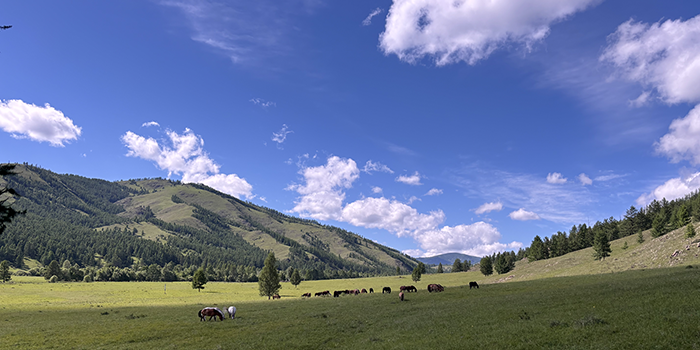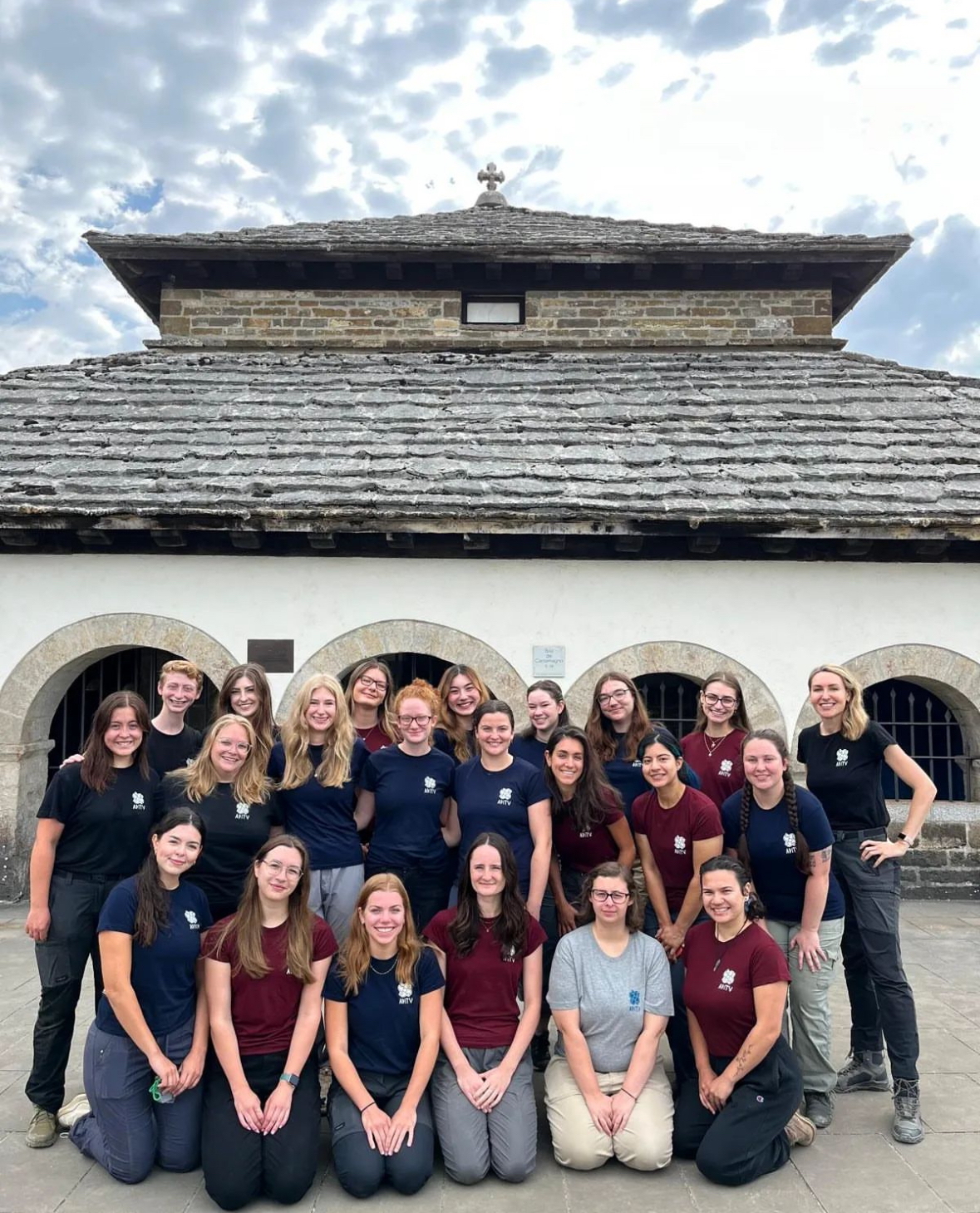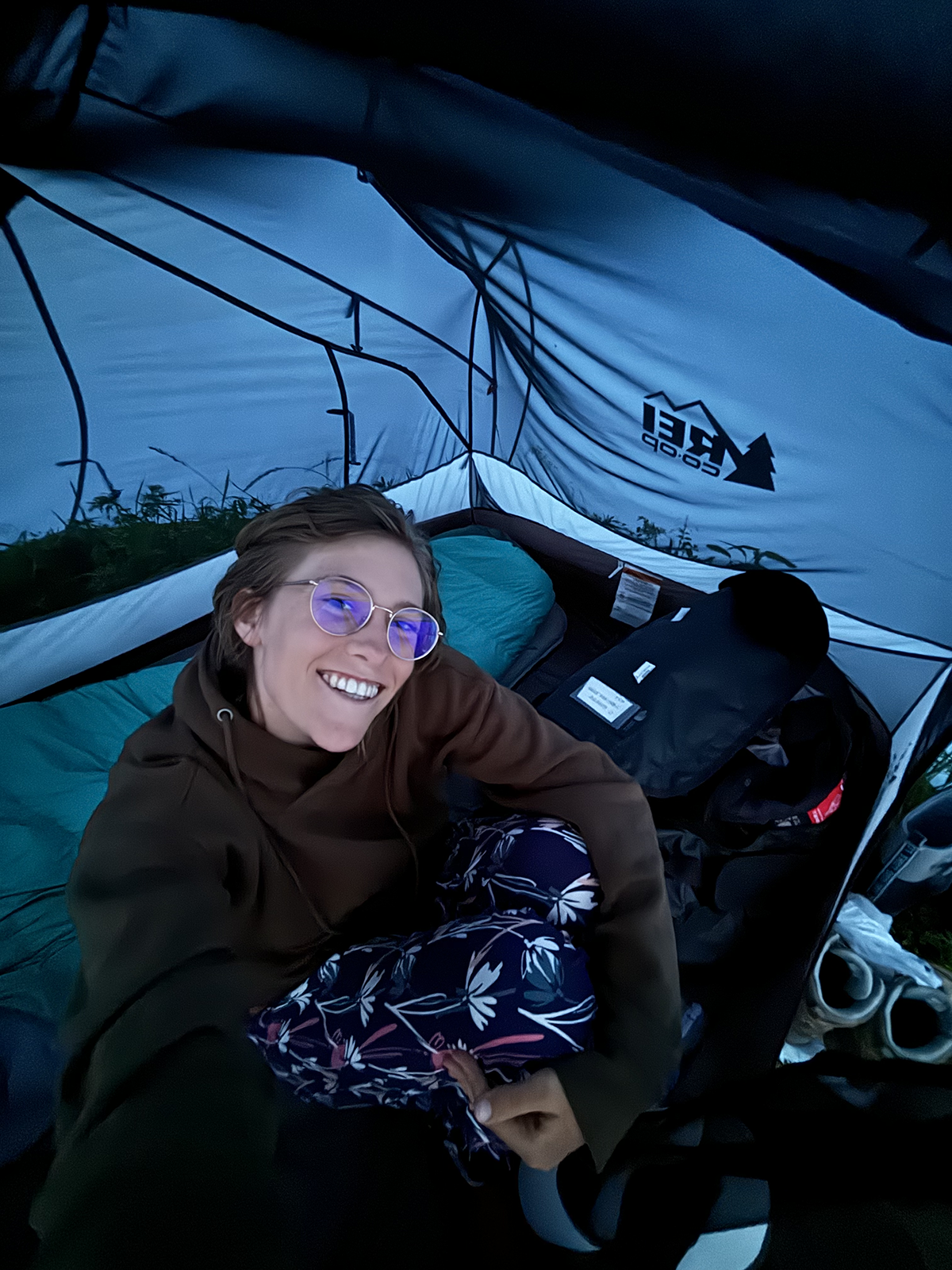Seven Pitt undergrads attended archaeology field schools in summer 2024 assisted by grants from the CCA and Department of Anthropology

Our amazing undergrads participated in field and lab work in Belize, Germany, Mongolia, Ohio (USA), Romania, and Spain.
Read their stories:
Bella Benge (Belize):

"This summer I spent two months excavating with Belize Valley Archaeological Reconnaissance (BVAR), a field school in Belize that focuses on Maya archaeology. The goal of these excavations was to uncover how labor and food networks were structured during the collapse of the Maya Empire. My time with BVAR allowed me to gain firsthand experience in unit organization, artifact preservation, site mapping, and other archaeological techniques. As someone who wishes to pursue a career in Mesoamerican archaeology, I can say that the experience will be an invaluable asset for my future pursuits. I want to thank the Center for Comparative Archaeology and the Anthropology Department at Pitt for providing me with the opportunity to participate this summer."
Katlin Bengoa (Spain) - Second row, third in from the right in the photo:

"This past summer I did an osteological/archaeological field school with Aditu Arkeologia in Roncesvalles —a small town in the Basque Country of Spain nestled in the Pyrenees Mountains. This field school was a great opportunity for expanding my knowledge of the human skeleton.
The site was located in an underground ossuary inside the Silo de Carlomagno (the building in the background of the photo). This excavation season largely consisted of collecting bones and bone fragments from its mass grave of comingled remains. Much of our responsibility was to process/organize these bones and bone fragments so inventory and MNI (minimum number of individuals) could be taken. We processed approximately 2,000 to 4,000 bone fragments a day, which helped us refine our skills in recognizing the unique features of individual bones. We also had the chance to work on excavating several graves of complete skeletons, do recording forms, and bioprofiling of these individuals."
Kyr Goyette (Mongolia):

"I spent a month this summer in Mongolia working on multiple sites in the Tarvagatai Valley with two Pitt PhD students and a team from the National University of Mongolia. This was my first field camping experience (I learned the hard way that staying hydrated is really difficult when you’re filtering your own water) and my first feature excavation. One of my favorite days was when we were excavating the wall of the pit house at site 180; I spent about two hours on this one charcoal deposit, and it was very satisfying to watch it emerge. Part of my project while I was there was to gather plant samples for a macro-botanical and phytolith collection, which was a great opportunity to learn about local plants and sent us on a fun adventure to what was quite possibly the coolest forest I’ve been in. I want to thank the CCA for their support as I would not have been able to travel and have this experience without it, and I encourage other anthropology and archeology students to take full advantage of these kinds of opportunities at the university!"
Sara McClory (Ohio, USA):

"This Summer I worked at the Ohio History Center completing inventories and processing Indigenous Ancestor remains for repatriation under the Native American Graves Protection and Repatriation Act. One of the sites I worked on is set to be repatriated in the next cycle, and that has added an extra layer of meaning to the work I participated in. I feel very strongly about the ethics associated with this work, and I’m incredibly grateful to the Tribes who have allowed myself, and other interns, to assist with the repatriation process."
Note: Photo does not depict actual lab-work because photos of ancestors or boxes that contain(ed) ancestors are not taken out of respect.
Hannah Marie Stewart (Belize):

"This year I was able to spend 3 weeks in San Ignacio, Belize through the Belize Valley Archaeological Reconnaissance (BVAR) field school thanks to the help from the Center of Comparative Archaeology. We worked to excavate a high status commoner housing unit in an orange orchard. I got to learn a lot about Maya archaeology through lectures and field work. I also gained experience in things such as: matrix sampling, inventorying artifacts, ceramic analysis, site mapping, grid set up, and much more thanks to the amazing supervisors and professors in the program. I gained so many helpful skills and had so many great experiences from my time in field school."
Emily Schneider (Germany):

"This summer, I spent six weeks in Germany excavating the crash site of a WWII B-17 bomber with the Indiana University of Pennsylvania field school. During this time, I gained valuable hands-on experience that I couldn’t have obtained in the classroom, including skills in screening dirt, ground-penetrating radar (GPR), metal detecting, and using a total station. In addition to these skills, I also formed many lifelong friendships and lasting memories while exploring Germany. I am incredibly grateful to the Center for Comparative Archaeology and the Anthropology Department at Pitt for making this opportunity possible."
Sophie Traczek (Transylvania, Romania):

"This summer I spent a month in Transylvania working on the Lost Churches Project at the site at Patakfalva. The project aims to excavate and relocate the remains from a medieval cemetery which was being harmed by the contemporary cemetery above it. Through working at Patakfalva, I got incredible firsthand experience in excavating grave sites, as well as the opportunity to conduct my own independent research on pathological conditions present in remains from the site at Agyagfalva. Working on this project was a life-changing experience not only for my career path, but for all of the incredible people I met along the way!"
The Importance of Fieldwork
Field schools are the first hands-on archaeology field experience for most undergrad students, and a required first step for more serious involvement. However, the cost can pose significant obstacles for students. The CCA will continue this grant program in 2025, with a short application due early in the spring semester.
